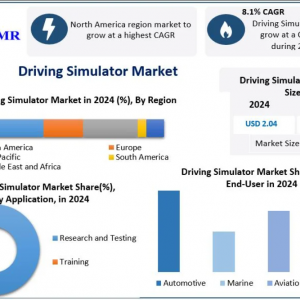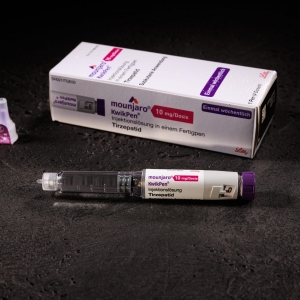White Biotechnology Market: Driving the Next Industrial Revolution Through Sustainable Innovation
The Global White Biotechnology Market was valued at USD 441.32 billion in 2023 and is expected to reach USD 865.50 billion by 2030, growing at a CAGR of 10.1% during the forecast period (2024–2030). The market is witnessing robust growth due to increasing demand for sustainable industrial processes, bio-based raw materials, and environmentally friendly alternatives to petrochemical-based products.
White Biotechnology Definition
White biotechnology, also known as industrial biotechnology, harnesses microorganisms, enzymes, and renewable raw materials to produce industrial goods such as biochemicals, biofuels, biomaterials, pharmaceuticals, food ingredients, and energy carriers. Unlike conventional chemical processes that rely on fossil fuels, white biotechnology leverages biological systems to develop clean, efficient, and sustainable production methods.
It plays a critical role in replacing polluting technologies with eco-friendly alternatives, reducing greenhouse gas emissions, and promoting a circular bioeconomy. This field serves as a bridge between life sciences and industrial manufacturing, marking a key step toward sustainable industrial transformation.
Download a Free Sample Report Today:https://www.maximizemarketresearch.com/request-sample/98059/
White Biotechnology Market Dynamics
Driver: Sustainable Production and Technological Advancements Fuel Growth
White biotechnology offers significant environmental and economic advantages compared to traditional chemical production. It allows industries to manufacture products using renewable feedstocks—such as agricultural and forestry waste—while minimizing energy consumption and carbon emissions.
The rise of metabolic engineering, synthetic biology, and genome editing technologies is revolutionizing strain development and process optimization. These innovations enable microorganisms to efficiently produce chemicals, fuels, and materials with higher yields and fewer by-products.
Additionally, bioprocess automation and AI-based data modeling are enhancing process efficiency and cost-effectiveness, making bio-based production more competitive with petrochemical methods. As industries across pharmaceuticals, food, textiles, and energy embrace sustainability, white biotechnology is emerging as a crucial pillar of green industrial growth.
Restraint: Process Efficiency and Cost Challenges
While white biotechnology holds great promise, production efficiency and scalability remain significant challenges. Many processes require optimization to achieve cost parity with traditional chemical methods. The need for advanced fermentation infrastructure and regulatory compliance also adds complexity and cost. Improving microbial strains and enzyme stability is essential to enhance yields and reduce production costs.
Opportunity: Expanding Biofuel and Green Chemical Markets
The global push for renewable energy is opening lucrative opportunities for white biotechnology, particularly in the biofuel segment. Bioethanol production has become one of the most established applications, offering a renewable alternative to fossil fuels. Recent government initiatives—such as the U.S. funding for next-generation ethanol research—are driving innovation in bio-based energy.
Similarly, the growing demand for bioplastics and biodegradable materials in packaging and consumer goods provides vast potential for expansion. White biotechnology’s role in producing sustainable alternatives to plastics, solvents, and surfactants positions it as a key enabler of the global green economy.
Developments in White Biotechnology
-
Bioethanol Production: The U.S. government is investing in advanced bioethanol research to make ethanol production more efficient and competitive, highlighting the strategic importance of industrial biotechnology in reducing dependence on crude oil.
-
Metabolic Engineering Advances: Modern tools in genomics and systems biology have enhanced the ability to design microbial strains for optimized biochemical production.
-
Growing Private Sector Involvement: Leading biotech firms and chemical giants are investing heavily in R&D and collaborations to scale up biomanufacturing capabilities.
White Biotechnology Market Segment Analysis
By Product
-
Biochemical
-
Biofuel
-
Biomaterial
-
Bioproduct
The biochemical segment dominated the market in 2023 and is expected to maintain its lead through 2030. Biochemicals are widely used across industries for producing enzymes, organic acids, amino acids, and biopolymers. Their environmental and social benefits, such as 17–65% reductions in greenhouse gas emissions, make them a key focus for sustainable industrial development.
The global shift toward bio-based chemicals also contributes to achieving climate targets—potentially meeting up to 20% of the Kyoto Protocol objectives through reduced carbon emissions. Rising consumer preference for eco-friendly and biodegradable products, particularly in North America and Europe, continues to drive growth in this segment.
By Application
-
Food & Feed
-
Pharmaceuticals
-
Pulp & Paper
-
Textile
-
Energy
The pharmaceutical and energy sectors are among the largest consumers of white biotechnology solutions. In pharmaceuticals, biotechnological processes are used for drug synthesis, enzyme production, and biopharmaceutical development. In the energy sector, biofuels and bio-based lubricants are gaining traction as sustainable energy alternatives.
Download a Free Sample Report Today:https://www.maximizemarketresearch.com/request-sample/98059/
Regional Insights
North America: Leading the Global Market
North America is expected to hold the largest market share by 2030, driven by strong governmental support, advanced research infrastructure, and corporate investments in biotechnology. The U.S. government’s policy initiatives promoting renewable energy and bio-based industries have accelerated the development of industrial biotechnology.
The region is home to several key players and research institutions focusing on bio-based chemical and fuel production, further strengthening its dominance.
Europe: A Strong Second
Europe remains a major hub for white biotechnology, supported by regulatory frameworks promoting carbon reduction and sustainable manufacturing. Organizations such as EuropaBio, the EU’s Industrial Biotechnology Association, are encouraging collaboration among industry stakeholders to scale up bio-based production.
The Netherlands, in particular, stands out with its robust life sciences ecosystem, contributing over USD 49 billion annually in turnover and investing nearly USD 950 million per year in R&D—much of which is directed toward industrial biotechnology.
Asia Pacific: Emerging Growth Frontier
Asia Pacific is poised for substantial growth, led by countries like China, Japan, India, and South Korea. Rising industrialization, government support for green technologies, and expanding food and pharmaceutical industries are fueling demand for bio-based solutions in the region.
Competitive Landscape
The white biotechnology market is characterized by the presence of both global biomanufacturing leaders and innovative biotech startups. Key players are focusing on mergers, partnerships, and R&D investments to expand production capabilities and strengthen their sustainability portfolios.
Key Players Include:
-
Amyris
-
BioAmber
-
Borregaard
-
Codexis
-
Deinove
-
Evolva
-
Fermentalg
-
Gevo
-
Global Bioenergies
-
Metabolic Explorer
-
Novozymes
-
Solazyme
-
Corbion
-
ADM
-
DuPont
-
Eucodis Biosciences GmbH
-
Koninklijke DSM NV
-
BASF SE
-
Evonik Industries AG
These companies are pioneering the transition toward bio-based economies through innovative bioprocess technologies, advanced enzyme engineering, and sustainable production models.
Conclusion
The White Biotechnology Market is at the forefront of the global sustainability transformation, offering eco-friendly solutions across diverse industries. With rapid advancements in metabolic engineering, genomics, and bioprocess optimization, white biotechnology is paving the way for low-carbon, resource-efficient manufacturing.
As industries increasingly prioritize green chemistry and renewable materials, white biotechnology is set to redefine industrial production—ushering in a new era of clean, circular, and sustainable growth.











